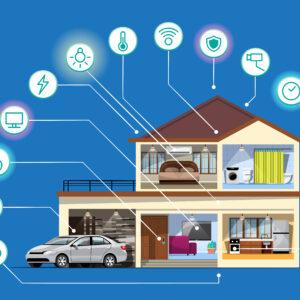Introduction
Decentralized Apps (DApps), are a new type of application built on a blockchain network. These applications are designed to operate without the need for central authority, making them more secure and transparent.
However, like any technology, there are both advantages and disadvantages of using Decentralized Apps (DApps). In this article, we’ll explore some of the pros and cons of using decentralized applications.
Advantages of using Dapps (Decentralized Apps)
- Decentralization: Decentralized Apps (DApps) are decentralized, meaning they are not controlled by a single entity or authority. This makes them more secure and resistant to hacking and fraud.
- Transparency: Since decentralized apps (dapps) are built on a blockchain network, all transactions are recorded on a public ledger, making them transparent and auditable.
- Privacy: Decentralized Apps (DApps) such as DeFi can also provide a high level of privacy for users, as personal information is not stored on a centralized server that could be hacked.
- Reduced fees: Decentralized Apps (DApps) such as DeFi Apps are typically cheaper to use than traditional applications, as they eliminate the need for intermediaries and middlemen.
- User-owned data: In Decentralized Apps (DApps) such as DeFi, users own their data and control who has access to it. This gives users greater control over their personal information and reduces the risk of data breaches.
Disadvantages of using Decentralized Apps (DApps) such as DeFi
- Limited functionality: Decentralized Apps (DApps) such as DeFi are still a relatively new technology, and they may not yet have the same level of functionality and user experience as traditional applications.
- Limited adoption: Decentralized Apps (DApps) such as DeFi are not yet widely adopted, which means that there may be limited options available for users.
- Technical complexity: Decentralized Apps (DApps) such as DeFi can be complex and difficult to use for non-technical users, which may limit their appeal to a wider audience.
- Risk of loss: Decentralized Apps (DApps) such as DeFi are typically based on blockchain networks, which are still relatively new and untested. There is a risk that the network may fail, leading to the loss of user data or funds.
- Limited support: Decentralized Apps (DApps) such as DeFi may not have the same level of support and resources available as traditional applications, making it difficult for users to get help when they need it.
Dapps or decentralized applications have various applications across different industries.
Here are some examples:
- Finance: Dapps can be used for decentralized finance (DeFi) applications like lending, borrowing, and trading cryptocurrencies.
- Supply chain management: Dapps can be used to track and manage the supply chain process, ensuring transparency and efficiency.
- Gaming: Dapps can be used to create decentralized gaming platforms that allow gamers to buy, sell, and trade in-game assets.
- Social media: Dapps can be used to create decentralized social media platforms that offer privacy, security, and transparency.
- Healthcare: Dapps can be used to store and manage healthcare data securely while ensuring privacy and compliance with regulations.
- Energy: Dapps can be used to create decentralized energy systems that enable peer-to-peer energy trading, reducing costs and increasing efficiency.
Overall, Dapps offer a range of benefits, including decentralization, transparency, security, and cost-effectiveness, making them suitable for various applications across different industries.
Conclusion
Decentralized Apps (DApps) such as DeFi offer a number of advantages over traditional applications, including increased security, transparency, and user privacy. However, there are also some potential drawbacks, such as limited functionality, technical complexity, and a lack of adoption.
As the technology develops and becomes more widely adopted, it is likely that the advantages of using Decentralized Apps (DApps) such as DeFi Apps will continue to outweigh the disadvantages. Nevertheless, it’s important to carefully evaluate the risks and benefits before using any new technology, including Decentralized Apps (DApps) such as DeFi.







